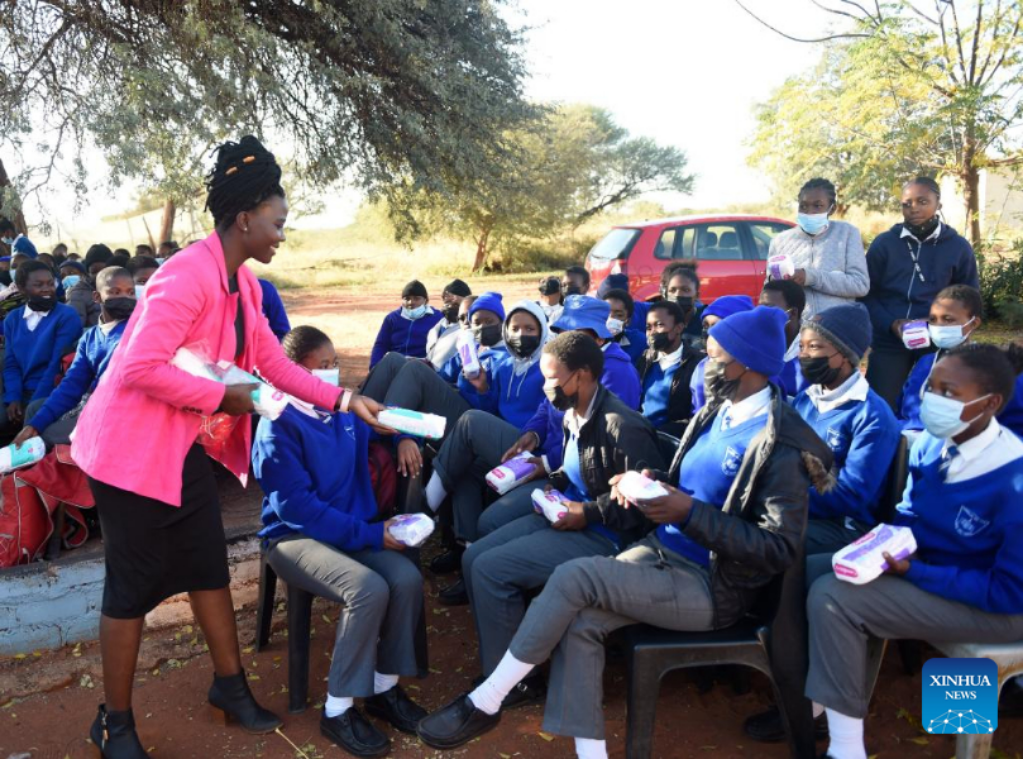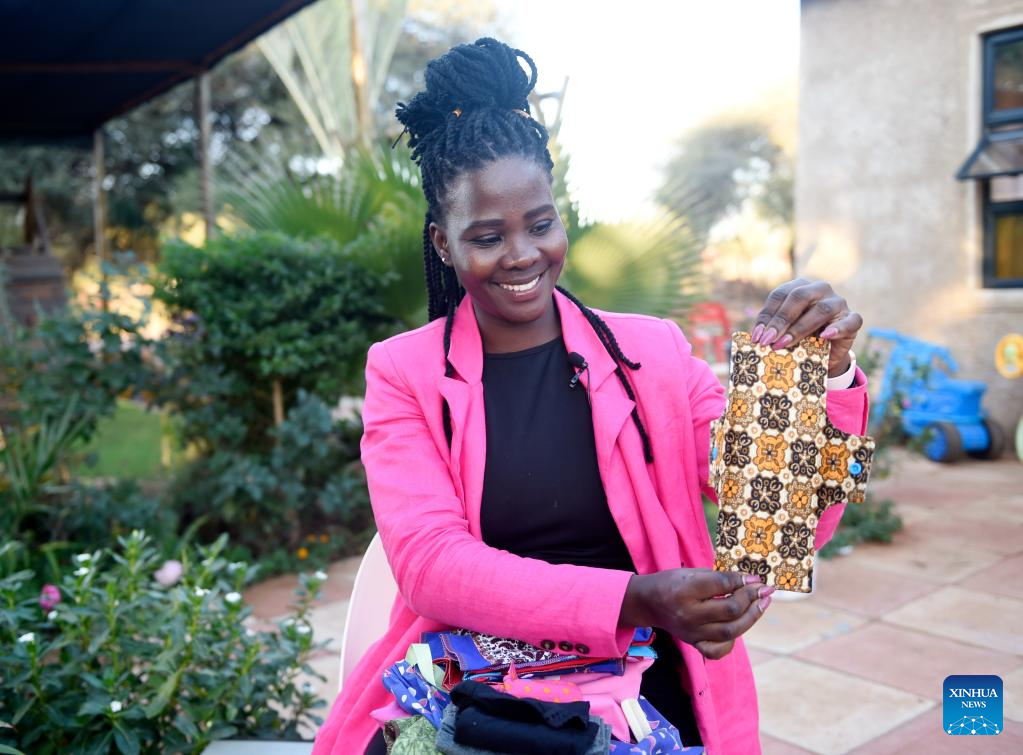
Agrieneth Masule (L, Front), who runs a feminine hygiene project that raises funds for sanitary pads given to needy girls through Motlaletsi Charity Club, distributes sanitary pads to students at Kgamanyane Community Junior Secondary School in Mochudi, a village in Kgatleng district, Botswana, on June 20, 2022. "Period poverty," defined as a lack of access to menstrual products, education, and hygiene, causes one in every 10 African girls to miss school each year, according to the United Nations Children's Fund. Without proper education and resources, girls are frequently forced to stay at home, particularly in rural areas. As a result, they miss 10-20 percent of their school days and, in some cases, completely drop out. (Photo by Tshekiso Tebalo/Xinhua)
by Tshekiso Tebalo, Teng Junwei
GABORONE, July 15 (Xinhua) -- "Period poverty," defined as a lack of access to menstrual products, education, and hygiene, causes one in every 10 African girls to miss school each year, according to the United Nations Children's Fund.
Without proper education and resources, girls are frequently forced to stay at home, particularly in rural areas. As a result, they miss 10-20 percent of their school days and, in some cases, completely drop out.
Agrieneth Masule is determined to change this in Mochudi, a village in Kgatleng district, about 37 kilometers northeast of Botswana's capital, Gaborone.
Masule, 34, runs a feminine hygiene project that raises funds for sanitary pads, which are then given to needy girls through Motlaletsi Charity Club.
Motlaletsi means assistance to people in need in the local Setswana language.
For the past six years, Motlaletsi Charity Club has worked with six schools in Kgatleng district, donating over 10,000 sanitary pads in total.
Sanitary pads are expensive, with one month's supply for a girl costing an average 150 pula (about 12 U.S. dollars), almost a quarter of a rural resident's monthly income, said Masule, who founded Motlaletsi Charity Club.
Masule, a single mother with two children, used to teach at several primary schools, but her last teaching contract was not renewed by the government. She now gives private lessons to primary and secondary students to support herself and her children.
While waiting to get a full-time teaching position at one of the institutions where she filed applications, Masule decided to focus on projects that help school-aged children, particularly girls.
In April, she completed a 252-kilometer walk to raise awareness about "period poverty," especially its impact on a girl's access to education.
"Many of the girls miss school because they do not have a simple sanitary pad. People laugh at them. People bully them. They feel uncomfortable and they go back home," Masule told Xinhua.
Her team seeks to get sanitary pads for needy girls to help them finish their basic education, she said.
"You can't run away from having your periods," Masule said. "A menstrual cycle should never prevent these girls from achieving their dreams."
Gaonyatsege Ntwayagae Phefo, senior teacher of guidance and counseling at Kgamanyane Community Junior Secondary School, said her school population consists primarily of needy students whose parents do not work, and they are usually forced to share their sanitary pads with other family members, and that sometimes they don't have anything when they have their periods.
"Since the donation of pads, girls have gained confidence and are more open to discussing menstruation issues," Phefo said.
Masule told Xinhua that the project has been a success and that she is pleased with the results -- guidance teachers are reporting that absenteeism is down thanks to the donations.
She said the charity still faces challenges because menstruation occurs on a monthly basis, so more sponsors and donations are needed.
They are also considering introducing reusable pads that are less expensive, more durable and environmentally friendly, Masule said. ■

Agrieneth Masule, who runs a feminine hygiene project that raises funds for sanitary pads given to needy girls through Motlaletsi Charity Club, shows a reusable sanitary pad in Mochudi, a village in Kgatleng district, Botswana, on June 20, 2022. "Period poverty," defined as a lack of access to menstrual products, education, and hygiene, causes one in every 10 African girls to miss school each year, according to the United Nations Children's Fund. Without proper education and resources, girls are frequently forced to stay at home, particularly in rural areas. As a result, they miss 10-20 percent of their school days and, in some cases, completely drop out. (Photo by Tshekiso Tebalo/Xinhua)
